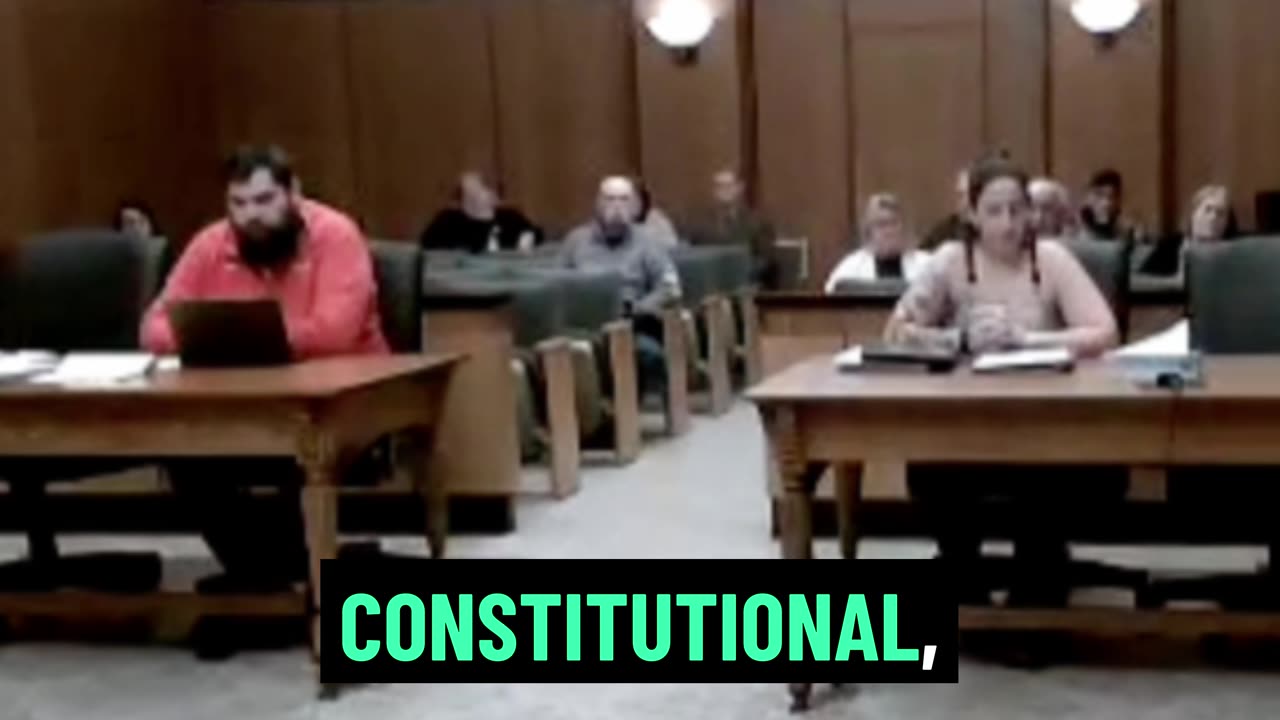Premium Only Content

Rebecca Risner Starke Circuit Court (Magistrate Micah Cox)
Summary
Rebecca Risner's motion to dismiss was partially granted, with the court allowing the state to amend defective charges.
Highlights
1. Defendant's Decision to Represent Herself
• Rebecca Risner confirmed her decision to represent herself in her criminal case, despite being advised of the risks and challenges involved, including the lack of special treatment and the need to follow all legal rules and procedures.
• The court explained the skills and knowledge required for self-representation, such as familiarity with legal rules, public speaking, and the ability to handle high-pressure situations.
• Rebecca acknowledged her limited experience with criminal law and the justice system but cited her research and reading as preparation for self-representation.
2. Motion to Dismiss
• Rebecca filed a motion to dismiss the charges against her, citing procedural failures, retaliation, and constitutional violations, including improper service of summons and defects in the charging instrument.
• She argued that the criminal information cited the wrong statute (IC 35-45-1-3-1 instead of IC 35-45-1-3-2) and that the facts stated did not constitute an offense under the disorderly conduct statute.
• The court acknowledged the defect in the charging instrument and granted the motion to dismiss in part, allowing the state to amend the information by the end of the day.
3. State's Response to Motion to Dismiss
• Prosecutor Mr. Pulis admitted the statutory citation error in the charging instrument, stating it was off by one section but argued that the essential elements of the charge were clear and would not mislead the defendant.
• The court allowed the state to amend the information, emphasizing that the amendment was minor and did not substantially prejudice Rebecca's rights.
4. Trial Preparation and Scheduling
• The court set the jury trial date for August 20, 2025, at 9:00 AM, with a final pretrial conference and plea agreement deadline on July 30, 2025.
• Rebecca indicated she would call one witness and expected the trial to last one day, while the state anticipated calling one or two witnesses.
• The court explained the process for subpoenaing witnesses, emphasizing the importance of filing paperwork with accurate information well ahead of time.
5. Procedural Guidance for Self-Representation
• The court provided Rebecca with detailed instructions on trial preparation, including the need to file motions and subpoenas properly and the consequences of failing to appear at trial.
• Rebecca was informed that the trial could proceed in her absence and that failure to appear could result in a warrant for her arrest.
• The court clarified the statutory framework for amendments to information and the importance of notice pleading in criminal cases.
6. Background and Context of the Case
• Rebecca described the circumstances leading to her charge, including a traffic stop where her husband was wrongfully arrested due to a protective order that had been dismissed two years prior.
• She alleged systemic failures, including the prosecutor's office not updating the dismissal of the protective order, which triggered a cascade of injustices.
• Rebecca expressed frustration with procedural errors and silence from authorities, emphasizing her belief that her rights to due process had been violated.
Next steps
1. Amend the defective information in the case by the end of the day: Mr. Pulis
2. File subpoenas for witnesses with correct information and addresses well ahead of time: Rebecca Risner
3. Prepare and file any additional motions before the final pretrial hearing: Rebecca Risner
4. Set the amended charges and proceed forward if the amendment is filed correctly: Mr. Pulis
-
 LIVE
LIVE
SynthTrax & DJ Cheezus Livestreams
21 hours agoFriday Night Synthwave 80s 90s Electronica and more DJ MIX Livestream POST DISCO / FUNK / R & B Edition
66 watching -
 1:18:27
1:18:27
Glenn Greenwald
6 hours agoGlenn Takes Your Questions on Major Saudi Arabia Celeb Controversies, Zohran Mamdani and the NYC Debate, Anti-ICE Protests, and More | SYSTEM UPDATE #533
79.3K12 -
 1:13:26
1:13:26
Tundra Tactical
6 hours ago $0.99 earned🛑{LIVE NOW} Gun Nerd Plays Battlefield 6 Great Tundra Nation Get Together Day 4
3.34K1 -
 LIVE
LIVE
GritsGG
6 hours agoRanked Top 70! Most Wins in WORLD! 3734+!
43 watching -
 LIVE
LIVE
LFA TV
1 day agoLIVE & BREAKING NEWS! | FRIDAY 10/17/25
855 watching -
 LIVE
LIVE
Joker Effect
15 minutes agoRUMBLE COMMUNITY STREAMING NEWS - CA BANS STAKE - ARC RAIDERS - KICK LOYALS TURNING! - NEW X ALGO
433 watching -
 1:04:41
1:04:41
BonginoReport
5 hours agoMichelle Obama Admits Affirmative Action Is A Scam - Nightly Scroll w/ Hayley Caronia (Ep.158)
84.1K38 -
 1:11:40
1:11:40
Kim Iversen
5 hours agoZelensky BLINDSIDED By Trump In White House Meeting | UK Bans RACIST JEWS From Attending Soccer Match
83.3K135 -
 3:10:25
3:10:25
Nerdrotic
6 hours ago $12.57 earnedRacist Academics Attack Tolkien | Hollywood to Strike AGAIN? | AI Doomsday - Friday Night Tights 376
97.7K6 -
 LIVE
LIVE
GrimmHollywood
21 hours ago🔴LIVE • GRIMM HOLLYWOOD • ARC RAIDERS •
98 watching